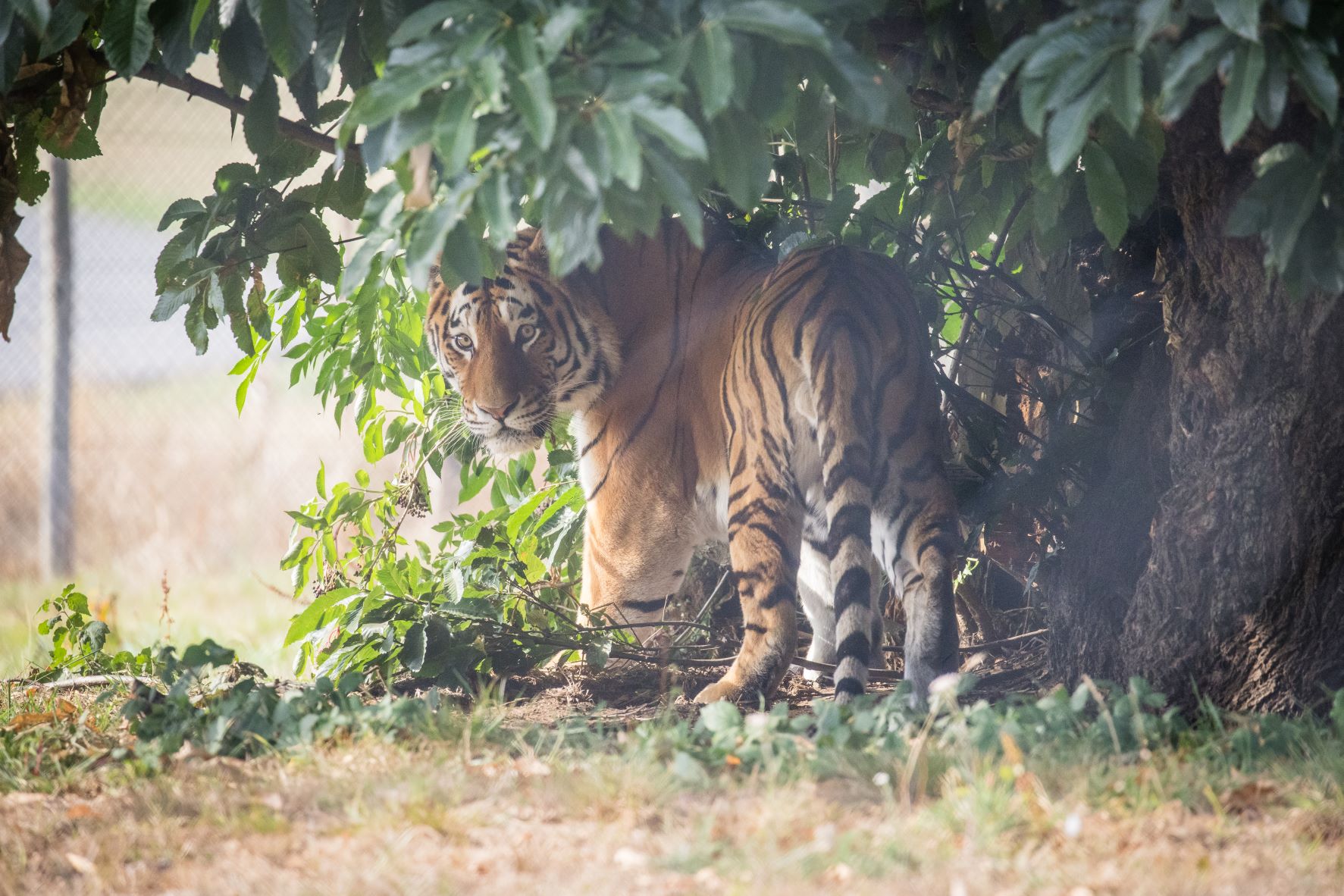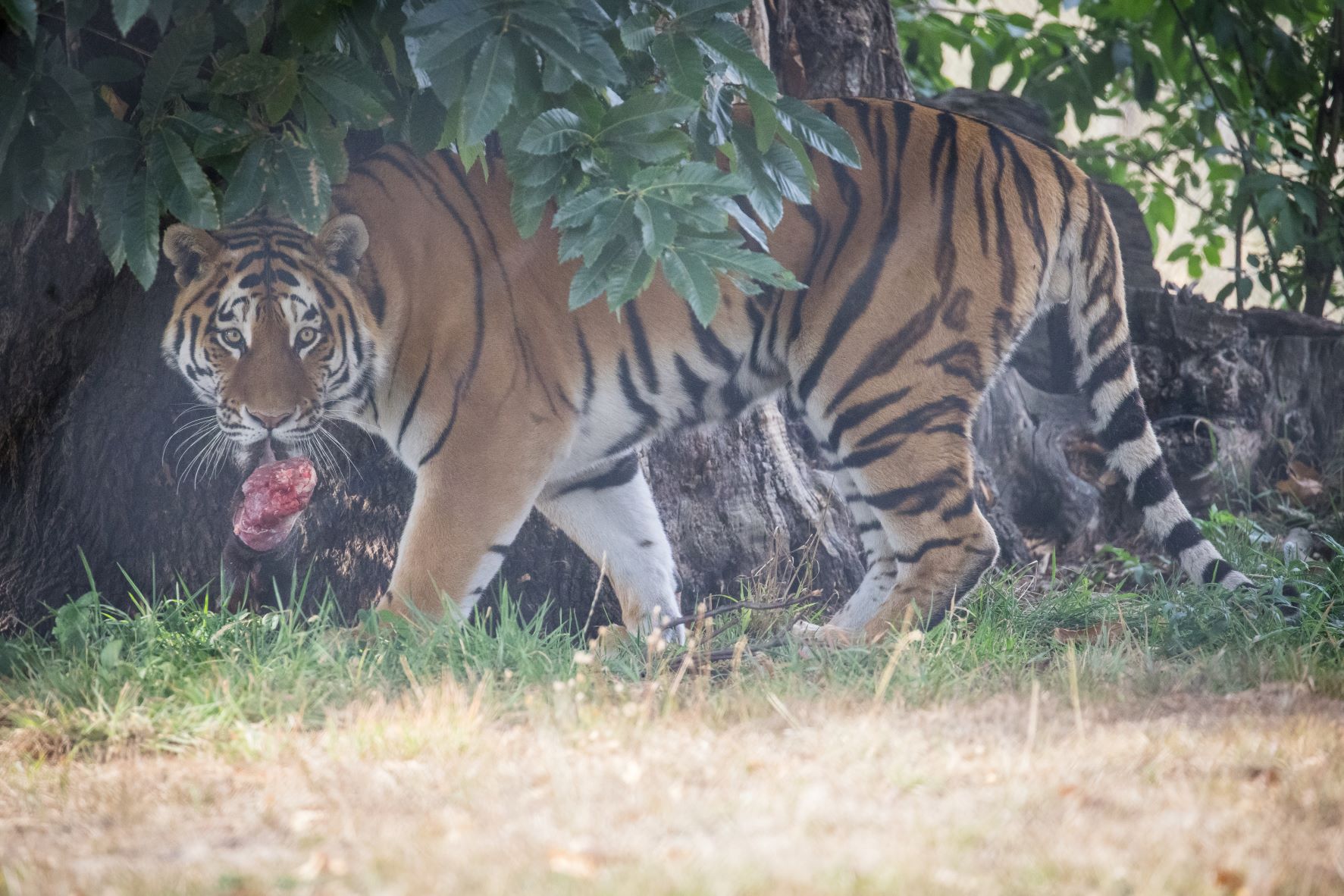You might remember that back in June we welcomed Dmitri, the four year old Amur tiger that transferred to Woburn from ZSL Whipsnade Zoo.

Although he’s been settling into his new home well, eagle-eyed visitors might have noticed that shy Dmitri hasn’t yet been out in the main section of the nine-acre reserve that he shares with 11 year old tigress Minerva (Vera) when the Park has been open to the public.
Ben Davies, Head of Carnivores, explains: “Dmitri is a great character that all the keepers are getting to know and love, and in time we know that he’ll be a firm favourite with all of our visitors too.
“It was really important to us that when Dmitri came to Woburn he felt completely at ease whilst transitioning to life at the Park. That meant letting him take the lead in terms of establishing his boundaries and timeline, so we’ve been working to his schedule!
“Not only were all of his surroundings brand new, but he hadn’t shared with an established female like Vera or been in a safari drive-through setting like Woburn before, so he was understandably quite shy for the first few months while he adjusted. Giving him his own space in the side pen of the main enclosure meant that he could get used to the new sights, sounds and smells, whilst still being visible for visitors, and it gave keepers the opportunity to start observing his behaviours as he made himself comfortable.”

Despite progress being slow to begin with, keepers have already noted that Dmitri is now much more confident and showing more of his personality every day. In the very hot summer months he enjoyed spending time in the shade of a large tree in the side pen, but he’s now out and about sitting on the logs or dining al-fresco and watching the world go by.
As the Park goes into winter opening hours, keepers will continue working closely with Dmitri on closed days to help prepare him for the main enclosure, with the aim that visitors will see him in the drive-through Kingdom of Carnivores reserve, when he is ready.
The Amur tiger species is classified as endangered and there are fewer than 500 individuals remaining in the wild. The team therefore hopes he will join Vera as an important member of the international breeding programme, where coordinated captive breeding has proven incredibly important and effective to help protect the future of this species.